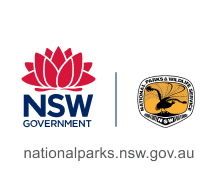School excursion
Going up the mountain
Thredbo-Perisher area in Kosciuszko National Park
Overview
Going up the mountain is a school excursion in Kosciuszko National Park for Stage 6 (Years 11-12) students focusing on Geography. Students will use field work to record and compare the geology, weather, native plants, animals, human use and sustainability of the montane, sub-alpine and alpine ecosystems.
Read more about Going up the mountain
Geography: biophysical interactions; ecosystems at risk
Historical summer grazing is used to illustrate the vulnerability of the alpine ecosystem to disturbance. Students use photographs and diagrams to examine the degradation and rehabilitation of the alpine and sub-alpine areas.
Students evaluate the impacts of ski resorts on water catchment values, and review park management actions to protect ecosystems and support sustainable use of the environment.
Combine this with other Kosciuszko Education Centre excursions: Kosciuszko – a special place and Above the treeline.
For program outline, safety and practical information about this excursion, see info for teachers
| Stage | Stage 6 (Years 11-12) |
|---|---|
| Learning area | Geography |
| Student outcomes |
GE-11-01. Examines places, environments and natural and human phenomena, for their characteristics, spatial patterns, interactions and changes over time GE-11-02. Explains geographical processes and influences, at a range of scales, that form and transform places and environments GE-11-07. Applies geographical inquiry skills and tools, including spatial technologies, fieldwork and ethical practices, to investigate places and environments GE-12-01. Analyses rural and urban places, ecosystems, global biodiversity and economic activity, for their characteristics, spatial patterns, interactions, and nature and extent of change over time GE-12-02. Analyses geographical processes and influences, at a range of scales, that form and transform places and environments GE-12-07. Selects and applies geographical inquiry skills and tools, including spatial technologies, fieldwork and ethical practices, to investigate places and environments |
| Objectives |
Students will:
|
Excursion details
- When
Weekdays November to May.
- Availability
- Guided. Available on request. Subject to staff availability.
- Duration
- 5hrs
- Grading
- Easy. Short walk in terrain with uneven surfaces.
- Price
-
$20 per student, minimum fee of $400.
- Accessibility
- Medium
- Meeting point
- Kosciuszko Education Centre, located on Kosciuszko Road at Sawpit Creek, 14kms from Jindabyne towards Perisher.
- Equipment
provided - Yes. All environmental games equipment is provided.
- Booking
- If you would like to organise a NPWS school excursion please get in touch with local staff or use the 'Enquire' link for the online form.
Local alerts
For the latest updates on fires, closures and other alerts in this area, see https://www.nationalparks.nsw.gov.au/education/stage-6-geography-going-up-the-mountain-kosciuszko-national-park/local-alerts
Operated by
- School excursion inquiries - Kosciuszko Education Centre
- 02 6451 3700
- kosci.education@environment.nsw.gov.au
Park info
- in the Thredbo-Perisher area of Kosciuszko National Park in the Snowy Mountains region
- The Thredbo-Perisher area is open all year, but some roads and trails may close due to weather conditions or park management issues. Kosciuszko Road is closed between Perisher and Charlotte Pass in winter (June to October long weekends).
-
Park entry fees apply on Alpine Way and Kosciuszko Road
Winter (June to October long weekends): $29 per vehicle per day (24hrs from purchase); motorcycles $12; bus passengers $11.45 per adult, $3.60 per child per day. Find out more about the winter entry surcharge.
Rest of Year: $17 per vehicle per day (24hrs); motorcycles $7; bus passengers $6.60 per adult, $2.20 per child per day.
Passes: Day passes, multi-day passes and annual All Parks Pass available from NPWS visitor centres, local agents and operating vehicle entry stations. Single and Multi-Day passes are also available via the Park'nPay app. Short Breaks Pass: $68 for 5 days park entry at price of 4 days (not valid winter).
Read our Annual Pass FAQs for information.
Buy annual pass.
Info for teachers
All the practical information you need to know about Going up the mountain.

